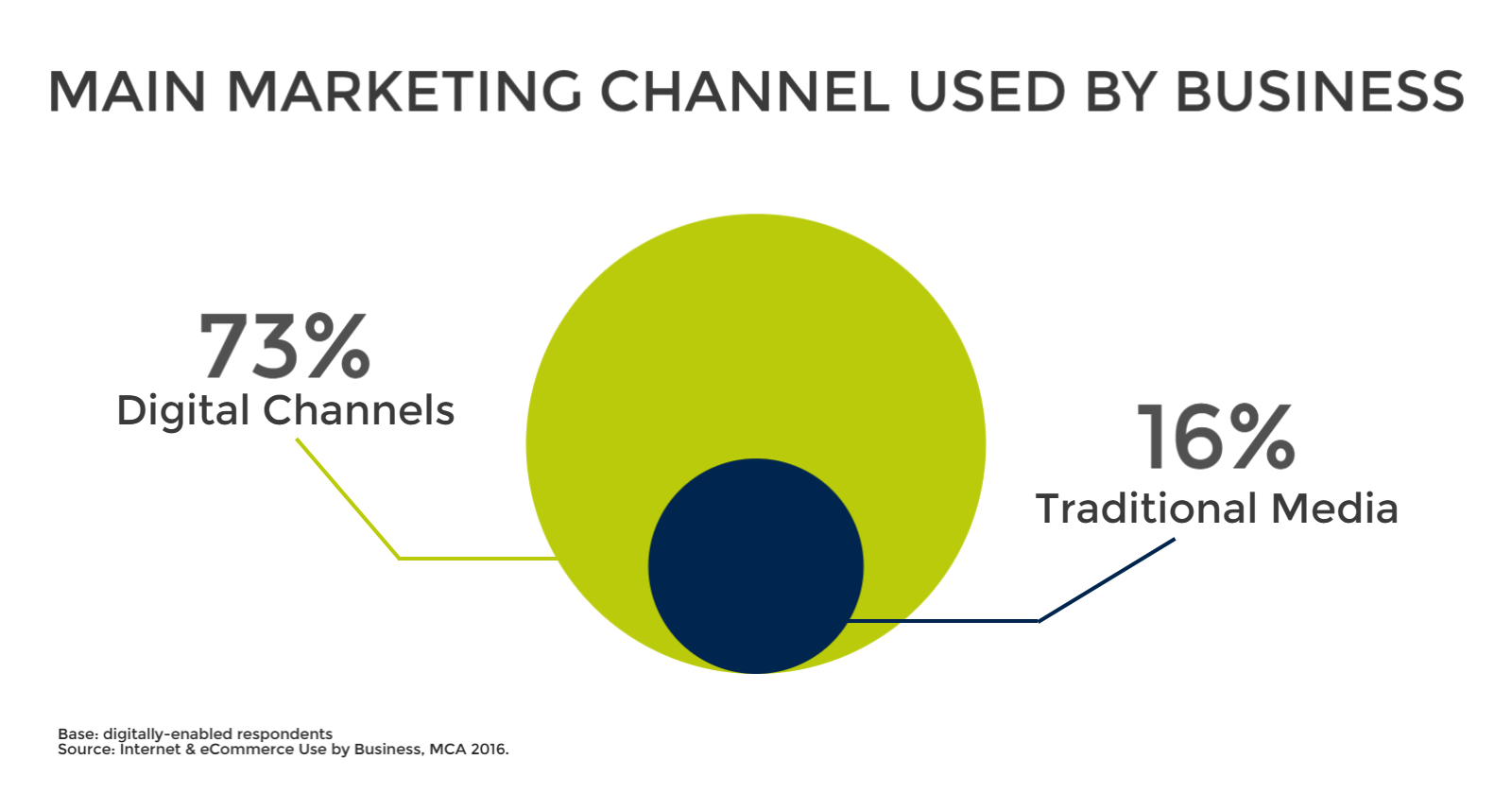More than half of Maltese businesses engage with customers online
Seven hundred businesses across Malta and Gozo participated in the survey. More than three quarters of these businesses are microenterprises employing 9 workers or less. The findings, which cover different areas of transformation, confirm that the brick and mortar model is still an important channel for most businesses in carrying out their commercial activities. Nonetheless, 47% of the respondents also use the Internet to engage with their customers, however, not necessarily concluding the transactions online.
SMEs and large enterprises are embracing technology more aggressively when compared to microenterprises. When asked about the use of IT systems (databases, documents, etc.) and the Internet in the day-to-day running of their business, 61% of microenterprises claim to make use of these digital tools when compared to SMEs and large enterprises, which almost all use such tools. Corporate internet users mostly use the Internet for communication purposes (96%), looking up information related to business (80%) and internet banking (74%). Interestingly, the number of businesses resorting to eLearning has doubled over a four-year period, whilst business-to-business activity remains unchanged.
The findings also highlight a potential relationship between the size of a business and website ownership, where larger businesses are more likely to have a corporate online presence. All large enterprises, 85% of SMEs and only 45% of microenterprises have invested in an online portal. Whilst the majority of those not having a website claim that they do not feel the need for one, a small number of those surveyed cited a lack of time and cost, as major reasons why they do not have a website. Furthermore, it should be noted that out of those having a website, only 27% feature prices and a mere 3% list stock availability. Other content accessible through websites includes the company’s general information (98%), privacy policy (19%) and terms and conditions (10%).
With regard to the reasons for opting to have a website, 54% claim a website enhances the company’s image/brand, 53% claim it is a good means to communicate information about the company enabling potential customers to contact the seller or visit the store. 83% of businesses also claim that a website is useful for their business. Compared to the findings of a previous survey conducted in 2013, a 22% increase has been recorded in the number of businesses that appreciate the benefits of having a website. Interestingly, businesses which include prices on their websites seem to perceive more benefits from their website when compared to those that do not include prices, (88% versus 62%).
Approximately 4 out of every 10 businesses carry out some sort of analysis of the data generated by their respective websites. 43% of those businesses which periodically conduct data analysis, have reported to do so, on a monthly basis, 27% do so quarterly and only 17% carry out such an exercise on a weekly basis.
Despite the annual increase in mobile penetration (which exceeded 573,000, according to Q2 figures), the upward trend in the number of data-enabled mobile subscriptions, coupled with an increase in purchases online, Maltese businesses are still exhibiting a degree of resistance to engage in online business operations. This behaviour is strengthened by the fact that only slightly more than half the businesses with a website have a mobile-optimised site, whilst 7 out of 10 companies that do not sell online are not convinced that their product or service could be sold over the Internet. Another 13% are discouraged by the costs involved in setting up an online presence, whilst 10% feel that they lack the skills or expertise to succeed online.
Only 12% of digitally-enabled businesses claim to sell through eCommerce channels, with the website being the preferred channel. The majority of businesses (78%) trade locally, more than half sell to other EU countries, whilst 40% trade globally. One of the main concerns for more than a third of online sellers is that they never get to meet the customer in person. Other concerns include the inability to translate web-traffic into actual sales and the opportunities to negotiate the best deal are limited. Notwithstanding some discouraging outcomes, on the positive side this study shows that Maltese business are, by and large, increasingly resorting to digital channels when promoting their products and services. Regardless of the size of the business, almost three out of four businesses prefer internet marketing over other, more traditional, methods of promotion, with Facebook occupying the top spot as the preferred platform of choice. This demonstrates that the local trading sector is appreciating the benefits and effectiveness of digital marketing as a tool to be more competitive and a means to broadening their market opportunities. This is an area where the MCA, in its commitment to roll out initiatives identified in the National eCommerce Strategy, has exerted significant energy during the last few years through the provision of training and mentoring programmes aimed at the different sectors of the enterprise spectrum.
Despite the benefits and opportunities that the Cloud could offer to businesses, especially to microenterprises, the adoption of cloud based solutions by local enterprises is low. In fact, 50% of digitally-enabled businesses are uninterested in these services, whereas for 21% of businesses, cloud solutions are not a priority. Only 19% of businesses are subscribed to some form of cloud-based services, whilst a mere 2% are either in the process of setting up the service or evaluating its viability. Apart from storage and back-up, which is used by 81% of those using cloud services, 72% are using such services as an email hosting mechanism. In view of the perceived lack of potential that seems to persist in this regard, the Authority feels the need to continue rolling out initiatives focused on the better understanding of the benefits and limitations of cloud based services and other ancillary areas that are challenging the operations of SMEs, and microenterprises in the digital era.

Additional information
The field work was undertaken between March and May 2016. The sample population was stratified proportionately among eight business sectors according to the number of registered companies in each sector. The instrument used in this study sought to assess the digital capabilities and readiness across the entire local industry.
The full report may be accessed from here.



